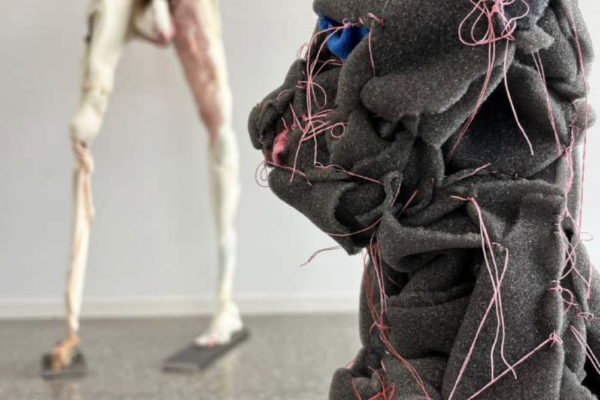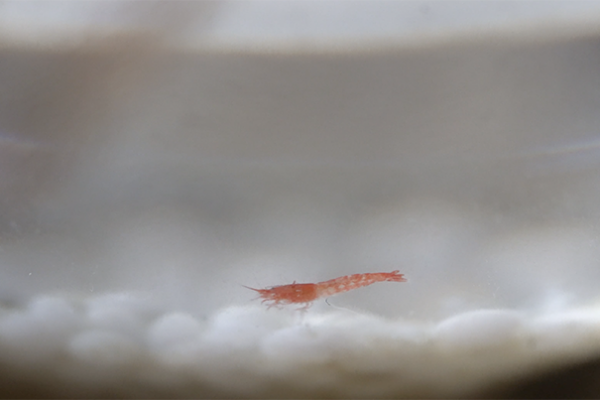In August 2021, CAF associate and Columbia University Navab Fellow Mary Qiu interviewed acclaimed filmmaker and 2011 grantee Liz Marshall on her inspirations, and the impacts and implications of her award-winning films The Ghosts in Our Machine and Meat the Future. Here is Mary’s report.
Toronto-based filmmaker Liz Marshall’s award-winning documentaries have been screened around the world. Her work highlights issues of social injustice, often with environmental themes, through the lens of a central character. When I introduced myself, Liz warmly asked me how I was dealing with the smoke in San Francisco amid the raging California fires. I told her that I lived by the ocean and that sea-swept wind greatly mitigated the contamination in the air. Liz commented that she resides by the water, too, and how lucky she felt to be surrounded by nature.
The Ghosts in Our Machine, which was released in 2013, follows CAF grantee Jo-Anne McArthur in her mission to bring attention through her photography to the abuse of animals. The film, which was supported by CAF, was championed by Canada’s documentary channel in a way that Liz says was unprecedented in Canada’s broadcasting history, although she dubs documentary to be Canada’s “national art form.” Ghosts won accolades from well-known film festivals around the world and received multiple nominations from the Canadian Screen Awards.
I asked Liz to reflect on the film almost eight years after its release. “I see it as a legacy project,” she commented, “because it served an enormous purpose and it continues to be seen all over the world. It’s a film that is timeless, really, and influential.” Liz told me that the goal of her film was to engage nonvegans and people involved in other spheres of activism, and help them see the intersectionality, as well as the moral significance, of the issue. With Che Green, the founder of the research organization Faunalytics, Liz worked to evaluate the impact of Ghosts and published an impact report—a global evaluation on the effectiveness of the film that can be found on the film’s website. “What we learned, which was so exciting,” she said, “was seeing that we were able to reach beyond the animal rights world, to reach activists form other social movements, and just people who have not considered these issues or topics as morally significant.” Liz added that the impact report is still used by the Doc Society as a model to understand the qualitative and quantitative effects of a documentary on people’s behavior and consciousness.
I asked Liz why she is drawn to a character-driven approach of filmmaking. The “audience needs a point of connection to humanize a topic,” she said. In Ghosts, she added, Jo-Anne is the entry point, the sympathetic person on a mission, and the audience gets to see the animals through her lens and her heart. “I don’t think there is anyone who has seen the film and doesn’t want her to succeed,” Liz added.
Liz’s latest documentary Meat the Future also tells a story through a character: Dr. Uma Valeti. Released in 2020, the film is about the birth of the cell-based meat revolution. “I knew that my next film needed to be about a solution,” Liz said. Whereas Ghosts was about consciousness- raising, opening hearts and minds, Meat is about a major idea that can potentially solve the problem.
Liz was introduced to Dr. Valeti through Bruce Friedrich, founder of the Good Food Institute, whom he met through Ghosts. Dr. Valeti was immediately onboard for a documentary film, says Liz, and he was able to provide the exclusive, behind-the-scenes access necessary for filming. Undoubtedly, she admits, choosing a new company as the main subject matter came with its own set of risks. “His start-up, Memphis Meats [now called UPSIDE Foods], could have just evaporated,” she says, and she recalls the stigma against cell-based meat when she first started filming, as well as the difficulty securing financing for the project. At the same time, Liz notes, the “rapid acceleration and momentum” she witnessed, was from a film-making perspective gratifying, “because I recognized, ‘I am really onto something.’” As the cell-based meat industry gains more visibility, Meat the Future is on track to gain more attention.
When I asked Liz what she learned from the film-making process, she responded: “Every film is transformative because it takes years of your life.” Ghosts took five of them, as did Meat the Future. Both ask the audience to look at their own attitudes and consumer habits. As Liz observed, the empathy we gain from looking at an issue through the lens of a character, whether it’s an artistic photographer or a passionate researcher, will hopefully encourage introspection in ourselves, in our relationship with nonhuman animals, in our place on the planet, and in our role at providing a solution to the problem.





